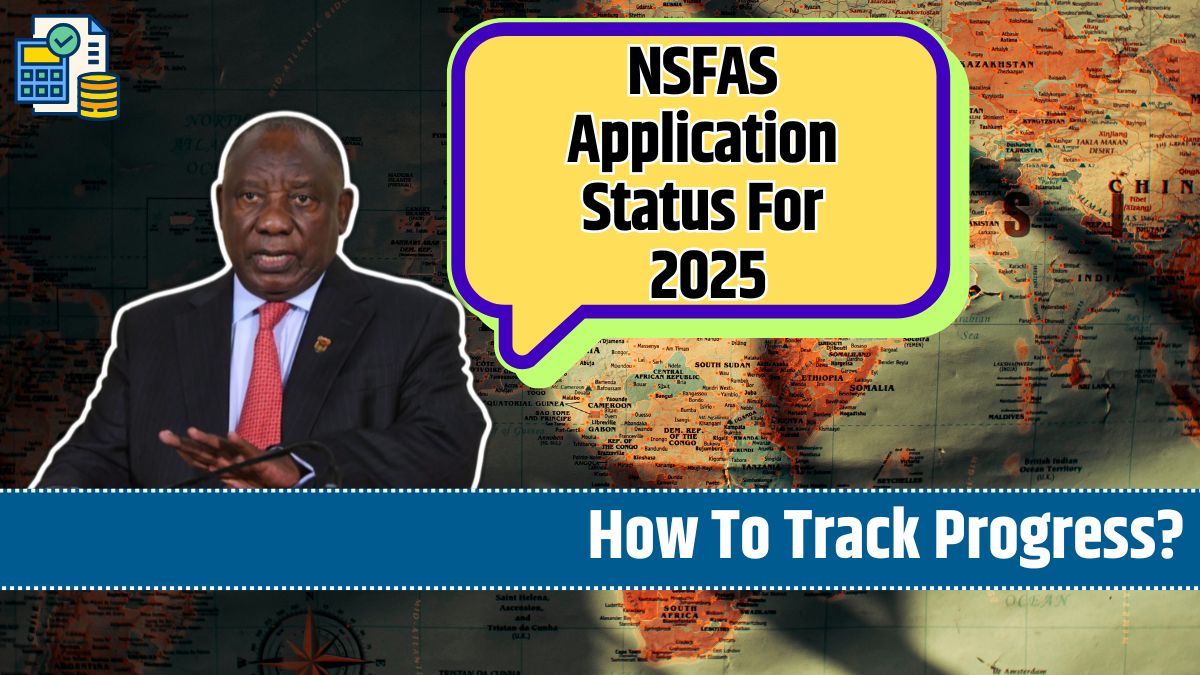The National Student Financial Aid Scheme (NSFAS) provides crucial financial support to South African students from low-income households.
Once you’ve applied for funding, tracking your application status is essential to ensure a smooth process and address any potential issues early.
This guide outlines the steps to check your NSFAS application status, understand your results, and navigate the process effectively.
Why Tracking Your NSFAS Application Matters
Monitoring your application status ensures:
- Your application is complete and under review.
- You can address requests for additional documents promptly.
- You stay informed about approval, pending, or declined decisions.
- You’re prepared to take action if necessary, such as filing an appeal.
Being proactive helps secure the financial support needed for your studies without unexpected delays.
Steps to Check Your NSFAS Application Status
1. Visit the NSFAS Website
Go to the official NSFAS website: www.nsfas.org.za.
- Navigate to the “myNSFAS Student Portal” on the homepage.
- Click the tab to proceed to the login page.
2. Log In to Your Account
Log in to your myNSFAS account using:
- Your South African ID number.
- Your account password.
New Users:
- Click “Create Account” if you haven’t registered yet.
- Have the following ready for registration:
- Valid South African ID number.
- Active email address for notifications.
- Secure password for account access.
3. Access Your Dashboard
Once logged in:
- Go to your dashboard.
- Select the “Check Your Application Status” option.
- View the current status of your application.
Understanding Your NSFAS Application Status
Your application will reflect one of these statuses:
| Status | Explanation |
|---|---|
| Approved | Application successful; proceed to register at your institution. |
| Declined | Application not approved due to unmet requirements or documentation issues. |
| Pending | Application under review; a final decision has not been made. |
If your status is pending for an extended period, follow up with NSFAS to ensure your application is progressing.
What to Do If Your Application Is Declined
If your application is declined, you can appeal under certain conditions.
Conditions for Appeals
| Reason | Action Required |
|---|---|
| Incomplete Documentation | Submit missing documents, such as proof of income or academic records. |
| Extenuating Circumstances | Provide supporting documents like medical certificates, death certificates, or affidavits explaining your situation. |
To appeal:
- Log in to your myNSFAS account.
- Go to the Appeal Section.
- Upload required supporting documents.
Non-Appealable Cases
Certain situations do not qualify for appeals, including:
- Ineligible Courses: NSFAS funds only undergraduate courses at public universities and TVET colleges.
- N+2 Rule Exceeded: Students exceeding the standard program duration (N) plus two extra years are ineligible, except for disabled students (N+3).
- Repeated Failures: Consistent academic underperformance without valid reasons disqualifies a student.
If your appeal is unsuccessful, explore alternative funding options like scholarships or private bursaries.
Contacting NSFAS for Support
NSFAS offers multiple support channels:
| Method | Details |
|---|---|
| Toll-Free Number | 08000 67327 |
| [email protected] | |
| Social Media | Facebook, Twitter, Instagram (@myNSFAS) |
| +27 78 519 8006 |
Reach out for assistance with account access, documentation issues, or appeals.
Tips for a Smooth Application Process
- Regular Status Checks: Log in weekly to monitor updates.
- Accurate Information: Double-check details during application to avoid delays.
- Update Contact Details: Ensure your phone number and email address are current.
- Timely Responses: Submit requested documents promptly to avoid rejection.
Tracking your NSFAS application status is critical to securing financial aid for your education. By using the outlined steps, staying informed, and addressing issues promptly, you can navigate the process successfully.
Whether your application is approved, pending, or declined, proactive action ensures you’re prepared to achieve your academic goals with minimal financial stress.
















